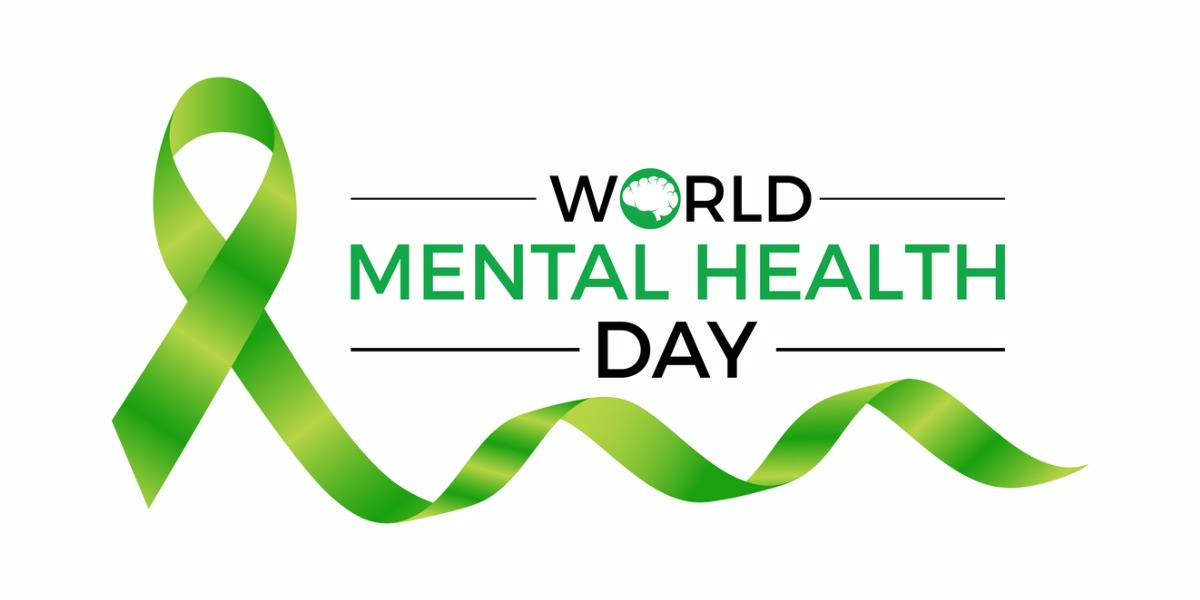Summary: World Mental Health Day is a mental health awareness and advocacy day organized by the World Health Organization (WHO). This year World Mental Health Day occurs on October 10th, 2025. This year, the organizers at the World Health Organization (WHO) encourage us all to recognize the mental health challenges posed by natural disasters and humanitarian emergencies.
Key Points:
- The WHO reminds us of this simple but powerful message: there is no health without mental health.
- Natural disasters, public health emergencies, and humanitarian crises cause significant psychological and emotional distress.
- The mental health consequences of disasters, emergencies, and crises persist long past the end of the acute phase of the event.
World Mental Health Day 2025
When people say the past five years in the U.S. have been stressful, they’re not exaggerating. We’re not just talking about culture and politics. We’re talking about real-world, consequential events that impact the health, welfare, and wellbeing of millions of people, such as public health emergencies, conflicts, and natural disasters.
Let’s take a moment to review what we’ve been through.
2020-2025: Natural Disasters in the U.S.
- 2020: A once-in-a-century disaster, the COVID-19 pandemic
- 2021:
- Severe winter weather crisis in Texas
- Hurricane Ida
- Boulder Colorado Wildfires
- 2022, 2023, 2024:
- The Maui wildfire, which destroyed the town of Lahaina
- Hurricane Helene, resulting in extreme, destructive flooding in Western North Carolina
- Severe tornados across the Southeastern U.S.
- Severe drought and heatwave in the Western U.S.
- Severe flooding in Northern California
- Extreme cold wave, Northeastern U.S.
- 2025:
- Southern California wildfires, which burned 4.2 million acres, destroyed thousands of homes businesses, displaced more than 150,000 people, and resulted in over 50 fatalities
- Central Texas floods, which swept through Kerr County and resulted in over 100 fatalities, including 27 children and counselors at a summer Girl Scout Camp.
Each of those events had the potential to cause significant mental and emotional distress, in addition to extensive physical injuries and property damage widely reported in the media.
World Mental Health Day: How Disasters Affect Mental Health
Data available in the study Impact of Natural Disasters on Mental Health: Evidence and Implications show that natural disaster disrupt mental health via two pathways:
- The Direct Pathway:
-
-
- Acute trauma
- Physical danger
- Risk-related stress
- Intensity of circumstances
-
- The Indirect Pathway:
-
-
- Damage to homes/living space
- Loss of resources and access to resources
- Disruption of life routines
- Forced relocation
-
Both the direct pathway and indirect pathway can lead to either the development of the exacerbation of existing:
These facts are not in dispute: natural disasters have severe mental health consequences. The facts beg the question:
How can we help?
Community Mental Health Support: Everyone Matters
Helping people overcome the mental health challenges associated with natural disasters and conflicts is the goal of World Mental Health Day 2025. The organizers at the WHO encourage everyone involved in disaster response, including government agencies, health care providers, first responders, social workers, social service providers, to recognize the value and importance of community-based interventions for mental health.
Community-based interventions can:
- Address acute mental health needs during crises
- Promote long-term recovery
- Empower communities and individuals to rebuild
- Increase likelihood of successful recovery
What organizations can do:
- Integrate mental health support into emergency response plans
- Train emergency responders in first-line psychological support
- Respect and leverage local cultural resources
- Allocate resources to long-term trauma-informed care
If you have mental health challenges associated with recent disasters, you can:
- Seek professional support. If you’re in crisis, do this sooner rather than later, or call 988 right now.
- Allow yourself time to adjust. Figuratively speaking, wait for the dust to settle, then assess your current state of mental health.
- Talk to friends, family, and/or participate in community support groups. Sometimes simply talking to and listening to people with a shared experience makes all the difference.
- If you’ve been displaced, do your best to engage in healthy behaviors and activities that reduce stress.
- If possible, re-establish your daily routines, and work to discover/create your new normal
Finally, the American Psychological Association advises against making major life decisions such as changing jobs or moving until time passes: the stress of disaster combined with mental health consequences may make good decision-making more difficult than in non-stressful times.
Extend Empathy, Practice Compassion
The WHO indicates that in 2024 alone, over 123 million people were displaced from their homes against their will either by conflict, persecution, or disaster. While each of these people need access to healthy food, clean water, effective medicine, and safe shelter, they also need evidence-based mental health support.
Why?
According to the WHO:
Mental health is essential for rebuilding lives after a disaster.
This is true for anyone, anywhere, who’s the victim of an environmental or natural event like a hurricane or a flood, or a human-made disaster like an armed conflict, a refugee crisis, or famine. In every case, people are at serious risk of long-term harm, and need organized, targeted support in order to recover and restore a sense of balance, calm, and normalcy to their lives. When you support efforts to improve mental health in your community, everyone benefits.


 Gianna Melendez
Gianna Melendez Jodie Dahl, CpHT
Jodie Dahl, CpHT